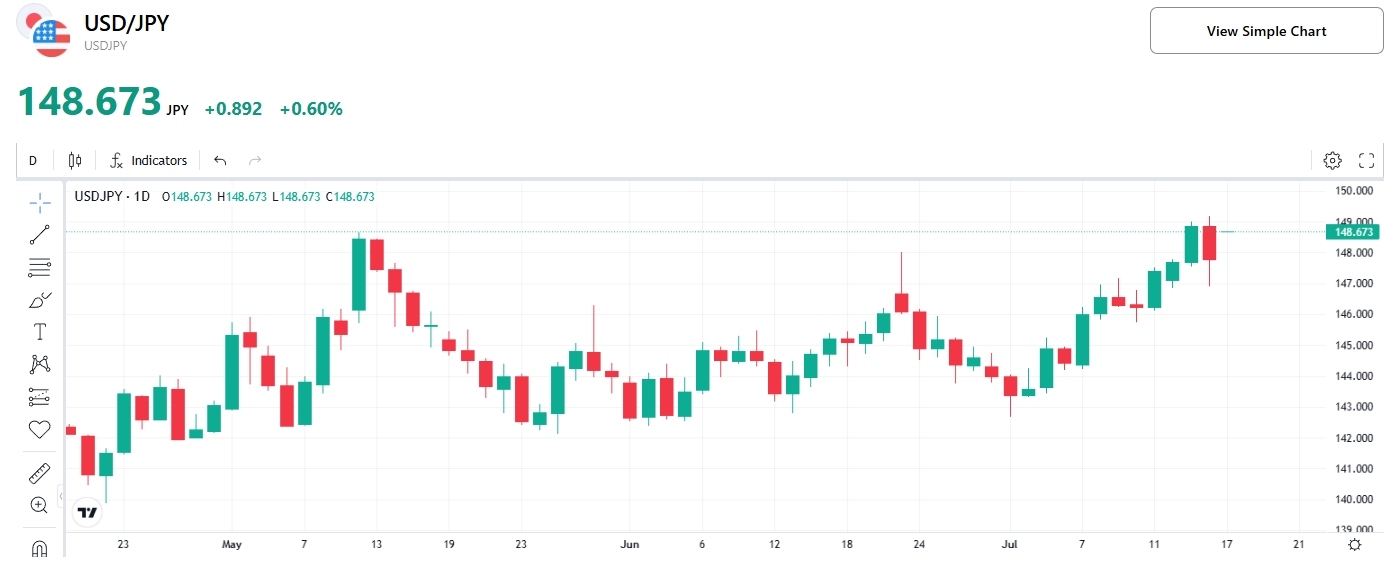Japan’s “Triple Selloff” Risk — Stocks, Bonds, and Yen All Under Pressure Ahead of Sunday’s Upper House Election
TradingKey - On Sunday, July 20, Japan will hold its upper house election, a vote that could reshape the country’s political and fiscal trajectory. Analysts are sounding the alarm: if the ruling coalition fails to secure a majority, it could trigger a rare “triple selloff” in Japanese stocks, bonds, and the yen — with USD/JPY potentially rising above 150, and Japanese government bond yields hitting new record highs.
Political Uncertainty Looms
Multiple opinion polls show that Prime Minister Shigeru Ishiba’s ruling LDP-Komeito coalition may struggle to win at least 50 out of 125 contested seats needed to maintain control of the upper house.
Analysts warn that if the ruling party loses its grip on both chambers of parliament — having already lost the lower house last year — opposition parties pushing for more expansionary fiscal policies may gain greater influence. That could lead to policy instability, including potential resignation of the prime minister and delays in U.S.-Japan trade negotiations .
This growing political risk has already started to impact financial markets.
Japanese Equities: End of the “Japan Re-rating Trade”?
Historically, when the ruling party has lost control of the upper house, Japan’s stock market has faced sharp corrections.
According to analysts, the TOPIX index has taken an average of 35–75 days to bottom after such losses, with declines of around 8%. That compares to the Topix index bottoming out in roughly 15 days if they win.
As of July 17, the TOPIX index was trading just above 2,800, down 0.46% in July — after three consecutive months of gains.
The so-called "Japan Equity Revaluation" trade has been partly driven by corporate governance reforms — a key pillar of the Bank of Japan's pro-equity stance.
However, Nomura analysts noted that these governance reforms may be impacted depending on which party forms the next coalition — a risk not yet fully priced into equity valuations.
With rising public dissatisfaction over income inequality, new political forces are calling for a shift — redirecting profits away from shareholders toward broader social investment.
Yen Weakness Deepens — First Net Short Since 2024
Since early July, USD/JPY has risen from 143 to near 149, with investors increasingly betting against the yen.
According to Bloomberg, short-term yen options have turned net bearish this week for the first time in almost a year.

USD/JPY Exchange Rate, Source: TradingKey
Major banks like Mizuho believe that a ruling coalition defeat could push USD/JPY beyond 150, with some suggesting 155 is possible. Mizuho also added that if the coalition holds, the yen could rebound to around 144.
Bond Market Faces Supply Surge
In the bond market, concerns over fiscal discipline are mounting. With expectations that government borrowing will increase under a weaker ruling coalition, JGB yields have surged to multi-decade or all-time highs across tenors.
SBI Liquidity Market analysts noted that while higher yields usually attract foreign inflows, this time the sell-off reflects domestic political and fiscal uncertainty — meaning rising yields may come alongside equity and currency weakness.
Sumitomo Mitsui Trust strategists warned that if extreme-right or left-wing parties gain ground, Japan could face a triple selloff in stocks, bonds, and the yen.



